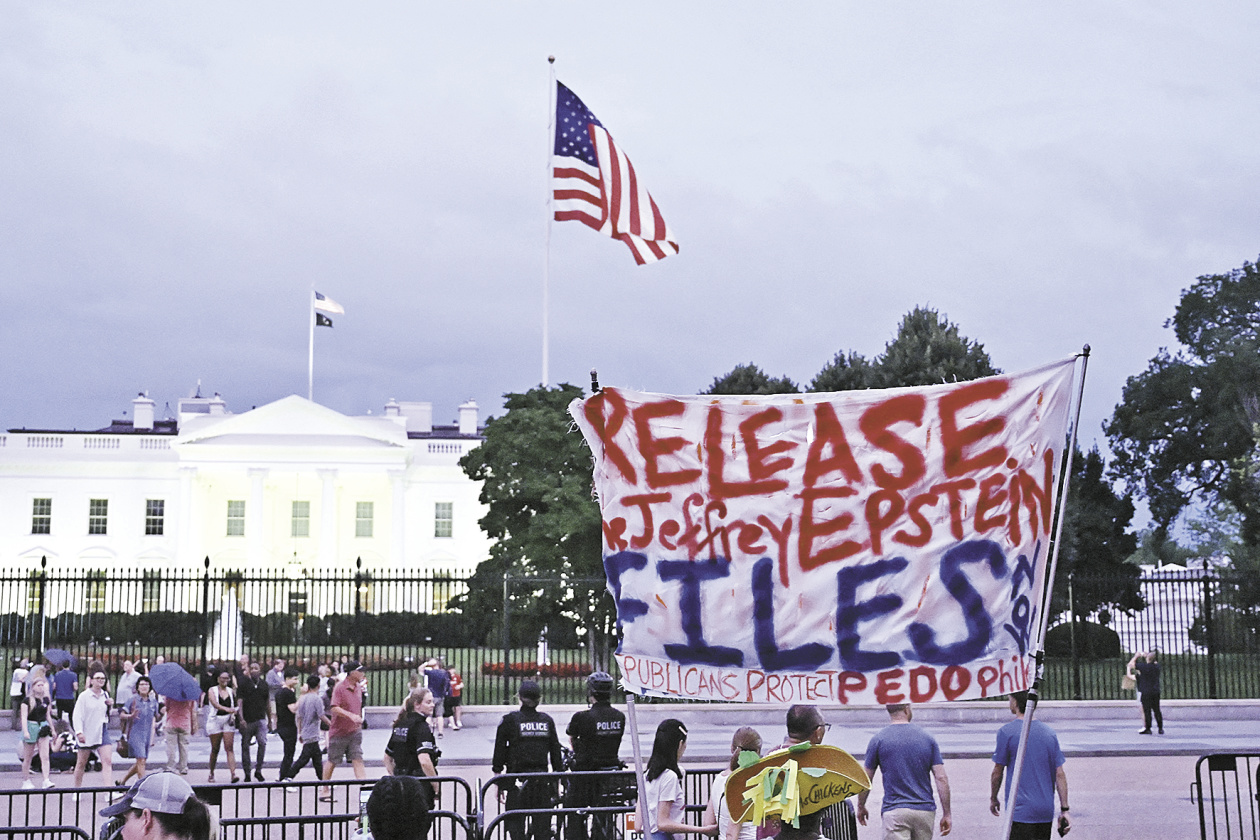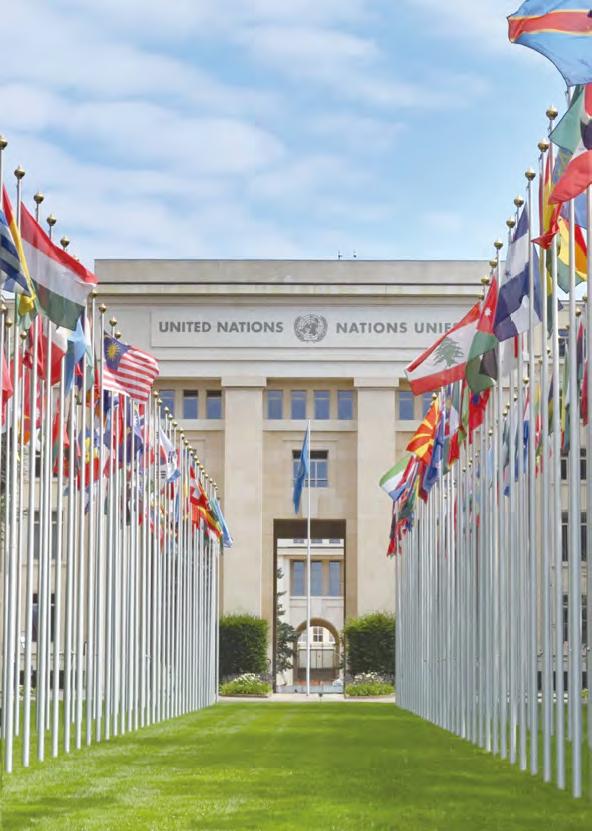
In July 2025, a single lawsuit sent shockwaves through the American political arena. President Trump filed a defamation lawsuit against The Wall Street Journal and its parent company, News Corp, demanding a staggering $10 billion in damages—a record for defamation compensation in the United States. At the heart of this legal battle lies a purported birthday letter from Trump to the late financier Jeffrey Epstein, containing sexually suggestive illustrations and ambiguous phrases like "sharing secrets." As details of the case gradually emerge, the complex relationship between Trump and Epstein, controversies over the U.S. judicial system's cover-up, and a crisis of division within the MAGA (Make America Great Again) movement collectively constitute a political tempest rocking Washington.
I. A Letter Igniting a Public Opinion Explosion
The Wall Street Journal's report was like a depth charge. According to the newspaper, in 2003, on Epstein's 50th birthday, Trump sent a congratulatory letter that not only included a hand-drawn outline of a naked woman but also ended with the phrase, "Happy Birthday—may every day be another wonderful secret." This letter was collected by Ghislaine Maxwell, Epstein's accomplice and a British socialite, who was sentenced to 20 years in prison in 2022 for aiding sexual crimes.
Trump swiftly counterattacked on social media, labeling the letter a "forgery" and denouncing The Wall Street Journal as a "disgusting, filthy rag." He emphasized that he had directly warned Rupert Murdoch, the head of News Corp, but the latter failed to prevent the publication of the report. However, the media quickly unearthed contradictory details: Trump had publicly auctioned his own paintings multiple times, making his claim of "being unable to draw" seem feeble. Moreover, flight records revealed that Trump had boarded Epstein's private jet, nicknamed the "Lolita Express," at least eight times, including one trip with Norwegian socialite Selina Midelfart—a key figure introduced to Trump by Epstein.
II. The Epstein Case: A Dark Puzzle of Power Games
The underlying backdrop of this lawsuit is the long-standing shadow of conspiracy theories surrounding the Epstein case. As the core of a sexual crime network, Epstein's mansion housed a vast collection of pornographic photos of powerful figures and surveillance equipment, with rumors of a "client list" involving top politicians and business leaders. During his 2024 presidential campaign, Trump promised to release relevant documents and even signed an executive order demanding the declassification of archives such as those related to the Kennedy assassination. However, the first batch of documents released in February 2025 was riddled with redactions, sparking intense dissatisfaction within the MAGA movement.
Even more intriguing was the abrupt reversal of the judicial system's stance. Attorney General Pam Bondi had previously declared that "a truckload of evidence had arrived," and FBI Director Kash Patel vowed that "no information would be concealed." Yet, they subsequently issued a memorandum with the Department of Justice, claiming that "no client list existed" and that "Epstein had committed suicide." This 180-degree turn was condemned by Julie K. Brown, a reporter for The Miami Herald, as "the most brazen cover-up in American history."
III. The Crisis of Faith Collapse within the MAGA Movement
Trump's predicament extends far beyond legal battles. His core support base, the MAGA faction, is predominantly composed of evangelical Christians who have zero tolerance for pedophilia. When Elon Musk publicly questioned whether "Trump was on Epstein's list" and established the "America Party" to push for document disclosure, the Republican Party quickly fractured: far-right Representative Marjorie Taylor Greene expressed disappointment, while House Speaker Mike Johnson supported releasing the documents but adopted an ambiguous attitude. Meanwhile, the Democratic Party relentlessly asked on social media, "Has Trump released the documents yet?" steadily eroding his moral authority.
Trump attempted to salvage the situation by shifting the blame. He first accused his supporters of being "selfish" for focusing on the Epstein case, then lambasted those demanding document disclosure as "radical left-wing lunatics," and even urged the Department of Justice to release jury records to "put an end to it." However, these moves only exacerbated internal turmoil—MAGA leader Laura Loomer publicly stated, "What we need is not jury testimony but the complete dossier."
IV. The Eternal Clash Between Truth and Power
At its core, this lawsuit represents a fierce collision between the demand for truth and the concealment of power. In the Epstein case, every clue—from Bill Gates being threatened over an extramarital affair to the possible involvement of Israel's Mossad intelligence agency in a "honey trap" extortion scheme, and from surveillance footage of Trump and Epstein viewing women together at Mar-a-Lago—points to a deeply entrenched network of the elite. Trump's lawsuit is not only a defense of his personal reputation but also a deliberate attempt to manipulate public opinion—by targeting The Wall Street Journal, he seeks to divert attention from the content of the documents to media ethics controversies.
However, history does not pause for lawsuits. As Musk used AI to analyze records showing Trump had boarded the "Lolita Express" seven times, as victims accused him of being introduced to them at Mar-a-Lago when they were just 14 years old, and as the Democratic Party continued to unearth evidence linking "Trump-Epstein-Melania," this storm has evolved into a nationwide inquiry into the transparency of the U.S. power structure. As The New York Times put it, "The Epstein case is a mirror that reflects the fears and desires of all who touch it." And Trump's $10 billion lawsuit may be just the opening salvo in this reckoning of power.

A recent major trade policy adjustment proposed by the United States has sent shockwaves through global markets—the U.S. threatens to impose 50% tariffs on EU goods while announcing 25% tariffs on all smartphones produced overseas, including Apple's iPhone.
A recent major trade policy adjustment proposed by the Unit…
In early 2026, the Trump administration's cross-border dete…
As the US-Taiwan trade agreement approaches its final stage…
In early 2026, the news that Federal Reserve Chair Powell w…
In recent years, with increasing environmental awareness an…
Recently, the European Commission has "technically revised"…